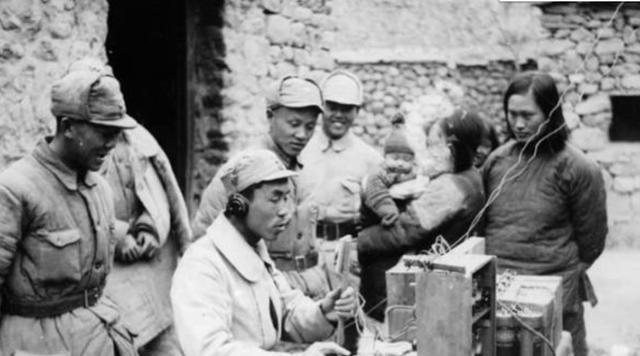So far, if the sun and the moon have traveled for thousands of years, its broad and profound purpose is beyond the reach of late scholars. ——Jiang Shichang's Preface to the Book of Yi Zhou
The great motherland brings together 56 nationalities, not only with a broad and profound culture, but also with a rich language. In addition to Chinese, many ethnic minorities have their own specific languages, and each region also has its own dialect. Chinese characters are also very difficult for foreigners to understand. Of course, even our people often have language barriers due to different regions. At the same time, due to language problems, some foreign spies are very headaches. For example, there was a foreign Chinese expert who overheard the communication records of our army, but this expert did not seem to understand our language very well, so he could only report to his superiors after thirty days: none of them spoke Chinese. In fact, this is precisely due to our dialect.

There are many dialects in our country, among which the southern dialect or Cantonese are very difficult to understand, and for those who do not understand, it is as obscure as mastering a foreign language. Fortunately, now we have all learned Mandarin and unified Chinese characters, so even if a few regions have their own languages, in some formal occasions, we will use Chinese to communicate, but in some informal occasions, everyone will communicate in their own dialects.
Fast forward to world war, when Germany declared war on most of the world's countries and Europe was persecuted by Germany, so Britain and the Soviet Union and Germany began to confront each other in World War II. In fact, Germany also has its own allies. At the time, Japan and Germany were in the same camp, and Japan targeted Korea, Vietnam, and China in Asia. After eight years of hard work, the Chinese finally ushered in the victory of the War of Resistance. After World War II, the fascist camp also ended in defeat, and at this point, the general trend of the world returned to peace, although on the surface countries were friendly exchanges, but secretly spies were moving around.
These spies began to steal secret information from other countries, of course, they will also have special identities. These people are good at disguising themselves and seducing some people who are not firm with various interests. There are many people who are shaken by profit, so they are willing to sell state secrets in exchange for more money. At the same time, countries have long thought of this step, so they all have their own methods of protecting secrets, such as telegrams, Sherlock Holmes codes, are all a way to protect confidential documents.
The Canadian and U.S. militaries have cooperated in the past. At the time, Canada was responsible for helping the United States intercept Japanese-Russian and Chinese telegrams. Although the telegraph can be communicated remotely, the confidentiality is very low, so both sides need to encrypt the telegram in various ways, and whether the enemy can decipher the telegram depends on whether their deciphering experts are capable. In order to facilitate them to decipher the codes of various countries, Canada selected some soldiers with good grades to learn the languages of various countries, and the main content of their learning was listening. At that time, they had many language experts who came to our military for voice communication and call monitoring. It is hoped that information on my country will be obtained.
Unexpectedly, these eavesdroppers listened for a month and still did not get any valuable intelligence, and the reason for their failure was precisely because of our dialect. In fact, these experts learned Chinese early on, but because our soldiers spoke dialects, these experts thought that we did not speak Chinese, and they did not know anything about our telegrams, so they could only tell the superior leaders that what the Chinese soldiers said was not half similar to Chinese, so the monitoring naturally failed.
In fact, at that time, our side had long thought of listening to other countries, so our country deliberately found some hokkien-speaking operators from Jiangsu and Zhejiang. The Hokkien language is obscure and difficult for even our natives to understand, so these foreign experts naturally cannot understand it. It can be seen that the many dialects of our country have invisibly strengthened the security of our intelligence.
The young man left home and returned to the old man, and the township voice did not change the sideburns. Children don't know each other, laughing and asking where the guests come from. ——He Zhizhang, "The Second Song of the Folk Puppet Book, Part I"
In our country, each place has its own characteristic dialect, and although many people have been away from home for many years, they still feel very kind when they return to their hometown and hear the familiar hometown dialect. No matter how many years we have been away from home, it is difficult for us to forget everything in our hometown. Of course, the languages of different regions have also enriched the language and culture of our country. Nowadays, we speak Mandarin in formal occasions, but in private, we can speak our hometown dialect, which is exactly what is characteristic of China. Not only that, but these characteristic languages can also come in handy at critical moments to protect more of our intelligence.
Resources:
Jiang Shichang's Preface to the Book of Yi Zhou
He Zhizhang, "The Second Song of the Folk Doll Book, Part I"